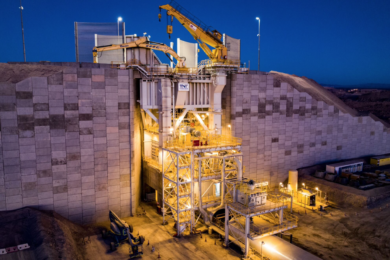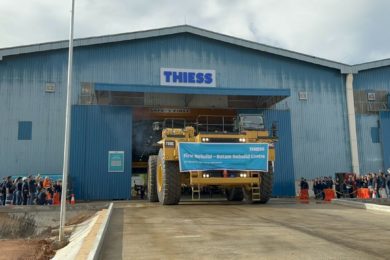Coal-fired power plant personnel and coal producers requiring consistent coal blends and fuel quality can now use a next-generation online analyser that offers a choice of two neutron-producing sources. The Thermo Scientific CQM FLEX coal analyser can incorporate either an electrically-driven neutron generator or Californium (252Cf) as its neutron source. With the neutron generator configuration, the CQM FLEX analyser can measure elements such as carbon, hydrogen and oxygen in addition to ash constituents. Additionally, the analyser can be reconfigured to switch to Californium as a neutron source, offering flexibility throughout the lifetime of the analyser.
“Managers, quality control personnel and engineers at power plants and coal mines must minimise variations in coal quality to remain efficient and profitable,” said Kevin Gordon, global marketing manager for prompt gamma neutron activation analysis for Thermo Fisher Scientific. “We designed the CQM FLEX to accurately measure, and rapidly report on, levels of sulphur, moisture, total ash, calorific value and many other critical parameters, including ash elemental concentration, improving overall plant productivity.”
As a sampled stream analyser, the CQM FLEX controls the flow of coal through the analysis zone, providing minute-by-minute elemental data on coal quality, enabling plant personnel to respond quickly to process variations and make corrective decisions. For power plants and coal mines in regions with complex and variable coal quality, such as China, India and Southeast Asia, the CQM FLEX is designed to ensure that coal sourced from multiple suppliers is properly blended to meet boiler design specifications. Additional features/benefits of the Thermo Scientific CQM FLEX coal analyser include:
• Fixed geometry analysis zone, designed to enable consistency and repeatability while negating adverse effects of belt-loading variations;
• Prompt gamma neutron activation analysis (PGNAA) technology allows for the non-destructive measurement of material composition by generating a subatomic reaction between a neutron and the nucleus of an atom;
• Direct measurement of calorific value by analysis of carbon, hydrogen and oxygen concentrations;
• Reduction in CO2 emissions due to improved boiler efficiencies;
• Comprehensive, easy-to-use operator interface provides extensive data analysis capabilities.









